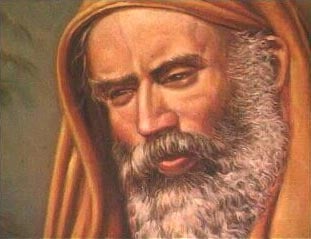Born at Rajewal, in district Luchiana June 4, 1904 to mother, Mehtab Kaur and father, Chaudhari Chibu Mal, who was from the Hindu faith. During childhood, Bhai ji was a Hindu and his original name was Ramjidas. He started his education at Khanna, Punjab and then later joined Lahore's Khalsa High School. He used to perform "sewa" (selfless service) in Gurdwara Dera Sahib and Gurdwara Shahid Ganj of Lahore, he would help with cleaning, cooking and serving food; he also tended to the aged, infirm and sick who came to the Gurdwaras to pay their respect to Guru Granth Sahib.
In an interview with Bhai Patwant Singh, Bhagat Puran Singh discloses how he became a Sikh. In his early life he use to travel a lot from village to village and would stay overnight at Hindu Temple. One day when he was staying at one such temple, the Brahmins told him to clean the temple and then when he had done that, they sat in front of him and ate food without offering him anything. The next time, he had to stay at a Gurdwara and the Gurdwara's Giani ji ("priest") not only gave him good hot food but also a cot and a glass of milk afterwards and all without asking for any sewa (service) for the Gurdwara. Bahi Sahib ji wrote: "Every night 25-30 travellers would come to the Gurdwara to stay; they were all served food from the common kitchen. This culture of the Gurdwaras deeply affected me". Following this incident, Bhagat Puran Singh decided to to take Khanda-da-Amrit and became a Khalsa in 1923.
Bhagat ji is one of the most promenant heroes of this century. He gave most of his adult life to the total selfless service to terminal and mentally ill patients, who in most cases had been abandoned by their families and society at large. He gave his life to provide the last hope for these desperate patients. It is recorded that whenever and wherever he saw a deserted dead body (human or animal), he would immediately prepare by his own hand a grave and give the corpse a deserving burial or cremation as a sign of respect for the dead body. He is recorded to have said, "Dignity in death is a birthright of each living thing."
He was the "Mother Teresa" of Sikhism, even despite the fact that he never had the backing of a powerful organization like the Roman Catholic Church. Against the ugly backdrop of violence and poverty of the 1947 partition, he established a premier care institute in Amritsar, Punjab which was established to cater for housing, nursing and care of sick, distitue, disabled and forlorn people of the state of Punjab. His life is a story of great personal sacrifice; a dogged determination against huge problem; a passion for service and seva; complete faith and surrender to the powerful Almighty and unending love for the suffering beings of the world.


Real hero Bhagat puran Singh.
ReplyDeleteThe Greatest man of world.
ReplyDelete